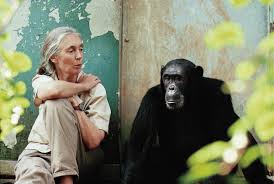Her discussion of the premises of biosemiotics (another word my spell check does not recognize) is both clear and fascinating, even if resembles scholastic disputations of the Middle Ages. The paragraphs might have been numbered. This is how it goes: All animate life communicates with its environment, through the senses, with humans distinguishing themselves principally via “total semiotic freedom,” i.e., spoken language. The acquisition of language has led to a loss of “naturality” and thus alienation from the animate world in which we have our existence and to the belief that we are superior to the rest of creation. Do I need to repeat it? We are back at the the anthropocene delusion.
I do not wish to denigrate “Naturphilosophie.” It is part of the history of ideas, and it has produced some solid evaluations (Richards, Beiser). But it is an intellectual realm that I have never been able to enter. That said, Naturphilosophie made a bit more sense (if that is the right term) after I finished Rigby’s article. In fact, it made clearer to me the entwined human and natural world of Die Wahlverwandtschaften (which Rigby does not discuss), reflected not only in the surface narrative but also in Goethe’s language.
Naturphilosophie seems to have built on advances in scientific examinations of matter that dispelled the purely mechanistic view of matter and that suggested something more dynamic in the organization of matter. But I can’t see how dynamism, as in the production of poetry, can be put under a microscope. Art, as in Goethe’s poetry, can capture our feeling (or intuition) of “hidden interconnectivities” between natural processes and our mental capacities. The "modern constitution of knowledge," characterized, as Rigby writes, by a rupture between scientific and humanistic disciplines, seems to formulate what is inherent in humans ab initio: the instinct to separate from nature and to use it instrumentally. We would not be human if we did not do so.
Certainly early humans “listened” to the “language” of nature, which must have been very audible to them, but it was always an instrumental listening. Their lives depended on paying attention, and most of us have certainly lost that ability. There is no state, however, to which humans can return as humans. It may happen that, like Noah's fellow humans, we will be punished for our poor stewardship of nature, but punishing suggests a final authority, a theological view that I can't imagine my fellow scholars accepting.
 |
| Environmentalist's vision of the future |
To return to my question: did Goethe’s heart leap up when he beheld a rainbow in the sky? I think not. It made him reflect on “Nature,” but did he revel in the natural world? The poetry that we associate with his early genius is saturated with nature imagery, but he would go on to turn his back on the sentiments of that period. I am fully aware of the effects of seasonal affective disorder, but I must say that my heart also does not leap up at the sight of the rainbow. When the first spring arrived after Rick’s death, it was only with intellectual curiosity that I noted the rebirth of the flowers and the cherry blossoms in Central Park. I admired the beauty of the natural world, especially the order that it manifested. None of this consoled me; only friends could do that. What I did notice is that Kant's observations on aesthetic judgment pre-occupied me. It is not surprising that I am a scholar of the Enlightenment, not of the Romantic period.
Picture credits: UNSW; Elias Schewel; Environmental Humanities Utah; The Vendor





No comments:
Post a Comment